Features
Why Do The Heathens Rage?
R.E.M. Albums Ranked Worst To Best
by Benjamin Ray
R.E.M. was one of the original alternative bands and one of the bands most responsible for that music’s push into the mainstream. Where many of their underground ‘80s contemporaries faded away as alt-rock became commercially successful, though, R.E.M. altered their sound slightly and found a vast new audience, sustaining them through their second decade. Their sporadic output at the turn of the century and the loss of drummer Bill Berry whittled their audience down to the faithful, but even after they called it quits in 2013 – 30 years after their debut – they remained fundamentally intact, true to their sound and spirit and fanbase. The band always seemed a bit more mature than their contemporaries, which showed in their music and live shows and perhaps contributed to their longevity, and other than some rumors and Michael Stipe’s political involvement, the band never really made headlines for anything other than music. So the music speaks for itself, then, and what follows is a ranking of the band’s studio albums, worst to best.
15. Around The Sun (2004)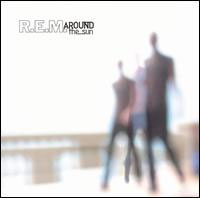
The three remaining members of the band aren’t terribly fond of this one either, and for good reason. There’s just no energy, the songwriting is uninspired and it’s just plain dull. Released in 2004 between two pretty good albums, this one is the group’s low point.
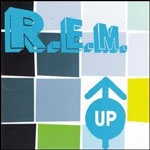 14. Up (1998)
14. Up (1998)
Released just after drummer Bill Berry left the group for health reasons, the band turned to the next natural evolution in its sound, electronics, and released a yawner of a disc. The timing (1998) was fine, but the songwriting lacked the spark that had infused every R.E.M. album up to that point. There are some good songs, of course, but this marked the beginning of the band’s descent.
13. Reveal (2001)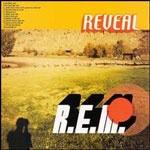
Hailed as a return to form after Up, this 2001 disc is a little more engrossing than its predecessor and far more organic. “Imitation Of Life” is one of the band’s great post-Berry songs. Granted, a return to form meant a return to the sound of Green and Out Of Time, but those are fine albums, and if this doesn’t exactly recapture the spirit, it at least gets the sound a little closer to the band’s wheelhouse. Not a great album, but a decent one with rewards for fans.
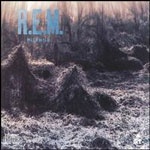 12. Murmur (1983)
12. Murmur (1983)
I’m not even sorry. Yes, Rolling Stone called this the best album of 1983, and in retrospect that makes sense, given how utterly original this sound was. R.E.M. sounded like nobody, really, that had come before, with only hints of folk, the Byrds’ jangly guitars and the underground spirit that developed in the early 1980s. Stipe’s mumbled, incoherent vocals became something of a joke, and the songs are underdeveloped and unmemorable even after multiple listens. Believe me, I’ve tried to see the genius that other critics see in this one, and while it may be an important disc and a fascinating debut, it’s just not one I really ever want to listen to, outside of “Radio Free Europe.”
11. New Adventures In Hi-Fi (1996)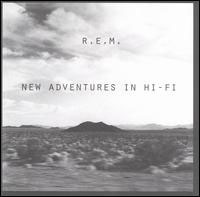
Following the chaos that was the Monster tour, the band retreated to the studio and dialed back the volume times four. With vague electronics thrown into the mix and a huge recording contract, Hi-Fi marked the beginning of the band’s third and final phase, one that would see decreasing sales and interest as the rest of the decade wore on. It was also Bill Berry’s final album with the group before retiring, though nobody knew it at the time. What makes this one interesting is its loose spirit, how it careens from the sound of the old days to the updated electronics to some rockers to some experimental pieces like “E-Bow the Letter” and “How The West Was Won and Where It Got Us” that show the band’s restless spirit. There’s a palpable sense of gray over the album that belies some of the charm, but it’s still a fascinating, flawed effort and the last solid album the band would make until a decade later.
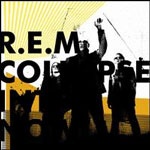 10. Collapse Into Now (2011)
10. Collapse Into Now (2011)
The last album is everything a swan song should be, and only at 41 minutes, the length of a standard album like the kind these 40-year-old men made back in 1984. Touching on all of the band’s sounds from 1988 onward, the music is confident, looking to a new future of hope while recalling the great moments of the past. Moving from acoustic set pieces like “Oh My Heart” to the near-epic closer “Blue” to the fun, breathless “Alligator Aviator Autopilot Antimatter,” true fans will no doubt be able to trace back many of these songs to the original sounds that inspired them (like how “Uberlin” strongly recalls “Drive,” for example), but it is to those longtime fans that the album shows its strengths. Not the place to start for newcomers fresh off the radio hits, but a solid final effort from a great band.
9. Monster (1994)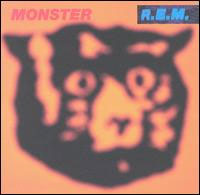
Monster turned out to be just that in regards to the band’s health. It secured them a fat contract but saw health problems for Stipe and Berry on the tour. It yielded some rock hits very much of their time period but saw the disc wind up in multiple discount bins to this day by frustrated fans. Like most albums that have earned derision over the years, it doesn’t really deserve the hate simply because it is so much a product of 1994, almost the point of tongue-in-cheek parody. Piles of overdriven processed guitars, explicit sex and ambivalent glam-rock excess define this one, making it sound like nothing else in the band’s catalog. It’s fun, though; “What’s The Frequency, Kenneth” rocks pretty hard and both “Crush With Eyeliner” and “Bang And Blame” are fine alt-rockers. This is really the only R.E.M. disc that sounds dated, and that’s saying something from a band that formed the same year I was born.
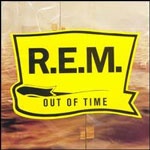 8. Out Of Time (1991)
8. Out Of Time (1991)
Buoyed by the presence of the legendary “Losing My Religion,” perhaps the band’s finest hour, Out Of Time showcases a burgeoning sense of studio craft, bringing in the mandolin from Green along with guest stars, keyboards and strings. The songs have more pop sheen and more personal lyrics, but all of this clutter seems designed to mask the lack of really good songs underneath. The dippy, cringe-worthy “Shiny Happy People” is sung without a trace of irony, unfortunately, and several of the songs just don’t have much to offer, which is unlike an R.E.M. album.
7. Fables Of The Reconstruction (1985)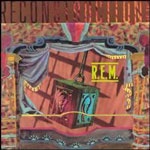
Kind of a downer, no doubt about it, especially coming between Reckoning and Lifes Rich Pageant, but an album that shows its virtues with repeated listens. The music is more folk-oriented in sound and especially the lyrics, which recall the South and all the strangeness that lies therein. Touches of psychedelic darkness and a moody specter linger through the tracks, but through the haze the quartet delivered some of its best songs to date, including “Feeling Gravity’s Pull,” “Driver 8” and “Can’t Get There From Here,” the latter of which sounds at odds with the rest of the album. R.E.M. was one of those few bands that continued to grow and expand without relying on stock formulas, and this third album proved that they were more than mumble-mouthed jangle-folk-rockers.
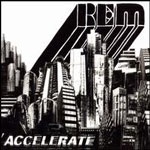 6. Accelerate (2008)
6. Accelerate (2008)
Coming back to life with a vengeance, in 2008, R.E.M. delivered one of its finest albums of its career and certainly the best as a trio. After many, many years of waiting, the band returns to rock and roll, taking the title of this disc quite seriously. It’s just over half an hour long and it is guitar-centric (electric, acoustic, and bass), with Stipe showing signs of life and energy not seen in a long while. The urgent “Living Well Is The Best Revenge” is a necessary jab at critics and the rest is just as strong, moving through “Houston,” “Sing For The Submarine,” “Accelerate” and “Horse To Water” with verve and purpose. The drawbacks to such an approach are that it’s so consciously a return to the past that some parts seem calculated, and a little bit of experimenting was always a welcome respite on an R.E.M. album. But no matter, as this disc simply cuts out the BS and focuses on why these guys became a band in the first place.
5. Lifes Rich Pageant (1986)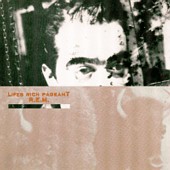
Find me another album from 1986 with the absolutely fantastic opening 1-2-3 punch as this album. You won’t. “Begin The Begin,” “These Days” and “Fall On Me” are three of the band’s best songs of the decade, signaling a radical new approach from the first three albums with loud guitars, enunciated vocals, a political ethic and a break from the folk and jangle that had defined the band’s original approach. It’s not quite a party album, and the middle section starts to fall apart after the fine “Cuyahoga,” but the disc closes with the fun garage rocker “Superman” and a rush of excitement. R.E.M. was always a pretty serious band, but this is probably their most fun record away from 2007’s Accelerate.
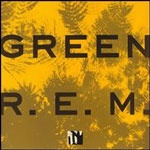 4. Green (1988)
4. Green (1988)
R.E.M’s major label debut is nowhere near the success that Document was, which feels like a major label debut. Oddly enough, this was the moment the band picked to start experimenting, switching up instruments and writing stuff like “I Remember California” and “The Wrong Child,” pop fluff like “Stand” and “Pop Song ‘89” and songs that don’t stack up to the heights of the bands best work. It’s a little random, to be sure, but it’s the most daring and experimental the band had been to that point, and it was clear the decision to move forward came at the right time for their psyches. Plus, the guitars play a more prominent role than in the past, most notably in the powerful “Orange Crush,” the best song on the album and one the band would nail in concert every time.
3. Automatic For The People (1992)
Moody, melancholy and stirring, Automatic stands apart from the band’s catalog. The songs are original folk-pop, unmistakably R.E.M., but with a sudden maturity and subtle elegance not found in their other music or in pretty much anything else in the alt-rock canon of the 1990s. Stipe never sang better, his voice connecting to the emotion of the songs and his lyrics reflective of true life, from the memories of “Nightswimming” to the political rant of the noisy “Ignoreland” to the childhood-hero-worship “Man On The Moon” to the stirring, string-laden “Everybody Hurts” to the opener “Drive.” Not every song is a masterpiece, and the downcast aura makes this a difficult album to listen to sometimes, but it is a beautiful piece of art.
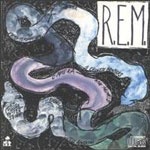 2. Reckoning (1984)
2. Reckoning (1984)
Miles better than the moribund Murmur, Reckoning travels back to the band’s origins to turn in a killer set of post-punk alternative rockers that turned them into underground college rock favorites. The folk-rock spirit of the debut may still be present but the sound is louder and more powerful, the true jangle pop approach shining through in “Pretty Persuasion” the forgotten gem “Harborcoat,” the melancholy “So. Central Rain” and “(Don’t Go Back To) Rockville." Even lesser-known songs became fan favorites, such as “Time After Time” and “7 Chinese Brothers.” Even the lesser album tracks like “Second Guessing” and “Little America” kick with energy and organic vitality, and in 1984 that was sorely necessary given the state of mainstream pop. It’s why people turned to something that was alternative, and this was the right album at the right time.
1. Document (1987)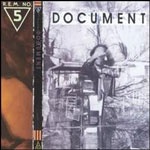
Although many feel Automatic is the band’s best album, that honor actually belongs to Document, the final of the group’s IRS-label albums before they signed to a major label. It’s also the one that broke the band through to the mainstream, by virtue of its clean production and the hits “The One I Love” and “It’s The End of the World As We Know It (And I Feel Fine),” great songs both. The propulsive “Finest Worksong” is their peer, an in-your-face guitar attack, and “Welcome To The Occupation” is one of the band’s most underrated songs, both political and jangly but with a melancholy feel that sweeps the listener up. The political side of the band that emerged on the previous record continued here on that song and others, and with the electric riffs and upfront melodies, the record simply delivers on all levels. Perhaps “Exhuming McCarthy” is a bit awkward and “Fireplace” isn’t necessary, but these are simply solid songs in between great ones. The closing “Oddfellows Local 151” is a strange yet wonderful song, a tale of a Southern eccentric (akin to Fables Of The Reconstruction) with some fantastic singing and vocal multi-tracking by Stipe and a slow but insistent Peter Buck riff that plays over a slowly encroaching drumbeat. It’s a song that shouldn’t work as well as it does, but it’s fantastic and proves that the band was in top form.